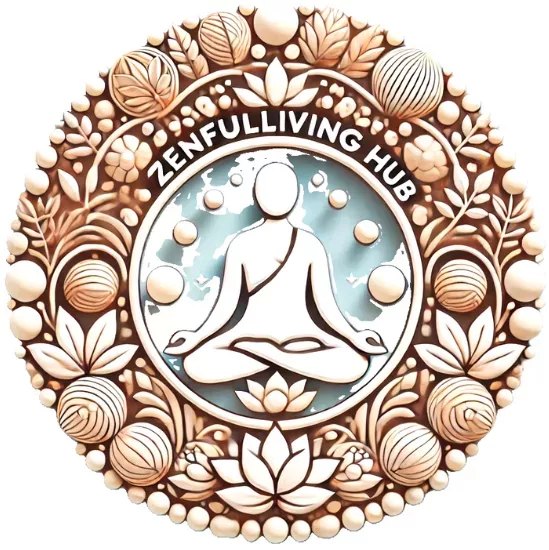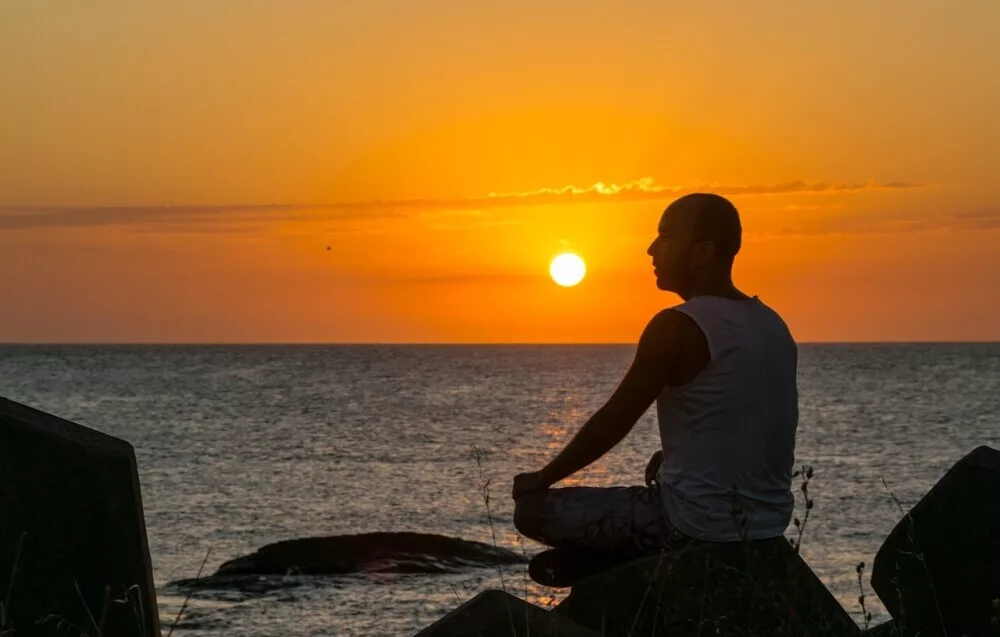
Mindfulness for Inner Confidence: Building Lasting Self-Esteem
True confidence doesn’t just pop out of nowhere. It’s not something you pick up from the latest success story or motivational quote. Confidence is a result of looking inward, embracing who you are, and refreshing your self-worth—regardless of what’s happening around you.
Let’s flip the script on how we often see confidence. The kind that sticks doesn’t come from nailing a perfect presentation or receiving online praise. It springs from something deeper: being okay with yourself, even on the tough days.
Where does mindfulness come in? Think of it as your confidence toolkit—a way to keep your head clear and your doubts in check. It steers you toward a calm state where you can nurture unshakable belief in yourself.
In this guide, we’ll explore practical ways to build inner confidence through mindfulness. These are not pie-in-the-sky ideas but actionable strategies to ground yourself in your value. Let’s dive in and unlock confidence that doesn’t need anyone else’s approval.
Understanding Inner Confidence: Beyond Surface Level
Inner confidence acts as your personal anchor. It keeps you steady in life’s storms. This type of confidence isn’t about accolades or endless applause; it’s about deeply trusting your capabilities and knowing your worth doesn’t rise or fall with external validation.
What Sets Inner Confidence Apart?
External confidence often relies on others: compliments, awards, or social media likes. Inner confidence, by contrast, comes from within. It’s embracing your strengths and quirks—flaws included—without seeking approval.
Imagine walking out of a challenging meeting. Instead of spiraling into self-doubt, inner confidence lets you pause, assess, and move forward, knowing one moment doesn’t define you.
For more on building unshakable self-trust, explore Enhancing Self-Belief: Strategies to Trust Yourself and Your Decisions.
The Role of Self-Awareness
Self-awareness is the foundation of inner confidence. It means taking an honest look at yourself and celebrating your uniqueness. This self-acceptance builds resilience, making you less likely to crumble under external pressures.
For more on how self-awareness drives personal growth, check out Improve Your Self-Awareness for Personal Growth.
Embracing Mindfulness: The Key to Unshakable Confidence
Mindfulness is not just about sitting cross-legged, staring at a candle. It’s about connecting deeply with yourself and responding calmly to life’s challenges.
How Mindfulness Supports Confidence
Ever find yourself replaying awkward conversations or worrying about future “what-ifs”? Mindfulness quiets this inner critic by bringing you back to the present moment. It helps you breathe, reflect, and respond thoughtfully instead of reacting emotionally.
Learn more about how mindfulness counters overthinking in Overcoming Self-Doubt: Practical Steps to Unlock Your True Potential.
Practical Benefits of Mindfulness
Mindfulness builds self-awareness, helping you identify patterns in your thoughts and emotions. Over time, you learn to recognize self-doubt triggers and develop healthier responses.
If you’re ready to explore mindfulness techniques, start with What is Mindfulness? A Beginner’s Guide.
7 Mindful Practices to Foster Inner Confidence
1. Confidence Meditation
Begin each day with a short meditation focused on affirmations. Use simple phrases like “I am capable” or “I am enough.” These moments set a positive tone and reinforce your belief in yourself.
Example Script: Morning Confidence Boost
- Sit comfortably and close your eyes.
- Take a deep breath in, and exhale slowly.
- Visualize a golden light surrounding you, radiating warmth and safety.
- Silently repeat: “I am enough just as I am.”
- Picture yourself accomplishing something meaningful, feeling proud and confident.
- Stay in this space for 5 minutes before gently opening your eyes.
For more techniques to reinforce positive thinking, explore Strengthening Self-Esteem: Role of Affirmations and Positive Self-Talk.
2. Journaling for Confidence Growth
Mindful journaling helps untangle emotions and reflect on your growth. Dedicate 10 minutes daily to write about your thoughts and experiences.
Prompts to Get Started:
- What’s one thing I did today that I’m proud of?
- When did I feel most confident recently, and why?
- How can I show more compassion to myself?
To explore further on how self-reflection aids emotional health, read The Benefits and Examples of Daily Mindfulness Practice.
3. Grounding Techniques for the Present Moment
Anxiety often stems from dwelling on the past or future. Use the 5-4-3-2-1 grounding exercise to reconnect with the present.
Real-Life Example: Before a Presentation
You’re about to give a speech and feel overwhelmed. Pause, take a deep breath, and focus on your immediate surroundings:
- Name five things you see.
- Name four things you can touch.
- Name three things you hear.
- Name two things you can smell.
- Name one thing you can taste.
This exercise anchors you in the moment and reduces nervousness. Learn more in Embracing the Power of Now.
4. Self-Compassion Practices
When you make mistakes, practice self-compassion. Remind yourself, “Everyone messes up, and that’s okay.” Speak to yourself as you would to a close friend.
Practical Tip: Create a Mantra
Adopt a mantra for tough times, such as:
- “I’m learning and growing. This moment doesn’t define me.”
Repeat it whenever self-doubt creeps in. Learn more about the role of affirmations and positive self-talk.
5. Setting Intentions
Write down a weekly intention, such as “Every challenge is an opportunity.” Revisit it daily to align your actions with your confidence-building goals.
Example Intentions:
- “I will approach today with curiosity, not judgment.”
- “I will celebrate small victories.”
To better align intentions with mindfulness, visit Boosting Self-Acceptance: Let Go of Perfectionism and Embrace Who You Are.
6. Guided Visualization for Confidence
Visualization strengthens your inner belief by creating a mental picture of success. Practice this before stressful situations.
Example Script: Visualization for Success
- Sit comfortably and close your eyes.
- Take a deep breath and imagine yourself walking into a room with confidence.
- Picture yourself speaking clearly, smiling, and feeling self-assured.
- Visualize the positive outcome you want to achieve.
- Repeat silently: “I am capable of handling this with grace.”
- Open your eyes and carry this energy with you.
7. Breathing Techniques to Calm Nerves
Deep breathing can help reduce stress and boost focus. Try the 4-7-8 technique:
- Inhale for 4 seconds.
- Hold your breath for 7 seconds.
- Exhale slowly for 8 seconds.
- Repeat this cycle four times.
Explore how the mind-body connection impacts confidence in The Mind-Body Connection: Exploring Harmony Between Mental and Physical Health.
Sustaining Inner Confidence: The Secret to Lasting Self-Esteem
Building inner confidence is a continuous journey. By consistently practicing mindfulness, you create a foundation of calm and clarity. This empowers you to face life’s challenges without being shaken.
Pairing Practices for Growth
Combine confidence meditation with journaling. Meditate to affirm your strength and journal to track progress. This positive feedback loop strengthens your confidence.
Resilience Through Mindfulness
Mindfulness fosters resilience by anchoring you in the present. When setbacks arise—and they will—mindfulness helps you navigate them with grace and bounce back stronger.
Explore Self-Worth: The Secret Ingredient to Confidence and Fulfillment to understand how self-worth enhances resilience.
Final Thoughts: Your Confidence Journey
Confidence isn’t about perfection. It’s about trusting your journey and growing with every step. By embracing mindfulness, you cultivate a steady belief in yourself that isn’t swayed by external validation.
Take it one mindful step at a time. Each practice, whether meditation, journaling, or grounding, brings you closer to unshakable inner confidence. Remember, you have the power to sustain this belief in yourself—starting today.


Hi Sabrina
The article on cultivating inner confidence through mindfulness offers valuable insights into building lasting self-esteem. I appreciate the practical tips and exercises provided, as they make the concept of mindfulness accessible and actionable for readers. Emphasizing the importance of self-awareness and self-compassion is especially impactful.
This post is a great resource for anyone looking to enhance their confidence in a meaningful and sustainable way.
Regards,
Ali
Thank you Ali, I appreciate your feedback. I hope to create more useful and valuable content to benefit others to build a long lasting self esteem.
Hello Sabrina,
Thank you for putting together this well-written piece on cultivating inner confidence.
This article is truly an eye-opener on the importance of inner confidence and how it plays a great role in maintaining our mental well-being and shaping who we are.
I recall a discussion I once had with a senior colleague, where he shared an insightful perspective on the greatest asset a person can possess: inner peace.He emphasised that mindfulness, self-realisation, and discovery are key to shaping one’s approach to virtually every aspect of life.
What fascinates me most about your article is how subtly yet powerfully it shifts focus from seeking approval to building self-trust through mindfulness. However, I’d love to hear your thoughts on how these principles can serve as buffers on social media, especially in today’s digital age, where ”likes” and ”love” reactions tend to fuel external validation.
In addition, do you think these mindfulness strategies can effecectively be used to help children and young adults develop self-confidenceas shield aginst bullies in school and the society at large?
I am going to share this article with friends and loved ones, as I appreciate the practical approach, especially particularly the 7 Mindfulness Practices For Confidence Growth.
Thank you for sharing this practical guide on facing life’s challenges..
Makinde
Hi Makinde,
Thank you for your thoughtful and insightful comment! I love how you highlighted the shift from external validation to self-trust—it’s such a crucial part of building inner confidence.
You’re absolutely right that social media often makes it harder to turn inward. The constant feedback loop of “likes” and reactions can create a false sense of self-worth, making external validation feel like the ultimate measure of confidence. But true confidence isn’t about how others perceive us—it’s about how we see and value ourselves.
One way to break free from this cycle is by setting intentional boundaries with social media. Instead of measuring our worth through likes, we can practice self-reflection by asking: Do I feel good about what I shared? Does this align with my values? Journaling, mindful breathing, and gratitude practices can also help shift our focus inward, reminding us that our value isn’t dependent on digital approval.
And yes, mindfulness strategies can absolutely help kids and young adults develop self-confidence. In fact, I truly believe these practices should be incorporated into the education system so that all children have the opportunity to build lifelong resilience and self-trust from a young age.
I really appreciate you sharing this article—conversations like this make the journey toward inner confidence even more meaningful. Looking forward to hearing more of your thoughts!
Warmly.
Sabrina